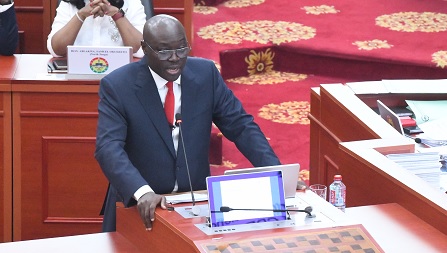Rubber producers and processors have lauded the government for its decision to halt the export of raw rubber at the expense of industries in the country.
They said the government’s policy direction to stop the export of the raw resource was instructive because the country had the capacity to process all the rubber produced in the country without any difficulty.
In a statement, the Association of Natural Rubber Actors Ghana (ANRAG) said the recent surge in export of raw rubber posed a threat to the industry and job stability, hence the shift towards enhanced value addition of the rubber before export would retain jobs and increase the country’s foreign exchange earnings.
Currently, the rubber processing capacity in-country is pegged at 178,420 tonnes per annum.
The capacity far exceeds the annual production of about 100,000 tonnes.
“As part of efforts to secure sustainable supply of raw materials for domestic processing and the development of the local value chains, the government will be restricting the export of raw rubber,” the Minister of Finance, Dr Cassiel Ato Forson, told Parliament when he laid the 2026 Budget in the House.
The move, the minister said, was part of a project known as “Feed the Industry Programme” to ensure that no raw material produced in the country was exported to create jobs in other countries.
Aside from rubber, the government also renewed a ban on non-ferrous metals and announced the creation of the oil palm initiative to grow tonnes of the produce to feed the industry.
The government also intends to partner the private sector to establish three garment factories in the Bono East, Central and Eastern Regions.
The factories would operate in three shifts with the capacity to generate about 27,000 direct jobs and improve the incomes and livelihoods of the communities.
It is part of its agenda to achieve industrial transformation, and the modern textiles and garments manufacturing as a strategic industry has been identified for its job-creation and export revenue potential.
ANRAG said the series of strategic industrial measures announced under the Trade and Agribusiness Initiatives in the 2026 budget to strengthen local value chains and accelerate national industrial transformation could not have come at a better time.
The capacity
The President of ANRAG, Emmanuel Akwasi Owusu, said the interventions were expected to enhance the value chain for component manufacturing for the automotive industry and machine parts.
The association and other players in the industry have carried out a lot of advocacy for the ban on raw rubber exports.
At the AGI Ghana Industrial Summit and Exhibition in Accra last month – ahead of the Budget presentation – ANRAG emphasised the urgent need for a deliberate policy to restrict raw rubber exports.
ANRAG believes that the country was losing close to $100 million annually as a result of exporting raw rubber with limited value addition.
“When raw rubber is exported, it earns roughly $600 per tonne, but when the rubber is processed locally, the value increases to nearly $1,500 per tonne.
This difference represents income and opportunity that should stay within Ghana,” Mr Owusu told the Daily Graphic last Friday.
He said many domestic rubber processors were currently operating below 40 per cent capacity due to inadequate access to raw materials, a situation the industry strongly believes must be corrected to strengthen the country’s industrial competitiveness.
Mr Owusu cited neighbouring Cote d’Ivoire, whose restrictions on raw rubber exports had helped the country generate over $2.1 billion from rubber last year, saying, “This is evidence of the transformative effect of value-addition.”
The Rubber Processors Association of Ghana (RUPAG) also welcomed the policy with a strong endorsement, describing it as a great move and a strategic policy shift.
The General Secretary of RUPAG, Perry Acheampong, said, “Value addition is the foundation of sustainable industrial development. For the past 10 years, our processors have struggled to operate at full capacity because of the exportation of raw rubber.”
“Government’s decision to restrict raw rubber exports under the Feed the Industry Programme is bold, timely and fully aligned with the sector’s growth trajectory,” he added.
Mr Acheampong said the policy demonstrated that the government was listening to industry and was committed to building a competitive and integrated rubber value chain that supported jobs, boosted rural livelihoods, and enhanced Ghana’s export competitiveness.
He, however, stressed that consistent implementation would position the rubber industry as one of Ghana’s strongest non-traditional export earners and a key contributor to inclusive industrialisation.
Background
Daily Graphic's checks reveal that containers loaded with raw rubber, which should have been processed locally, leave the country’s shores every week from a large yard located at Sofokrom in the Sekondi-Takoradi Metropolis.

